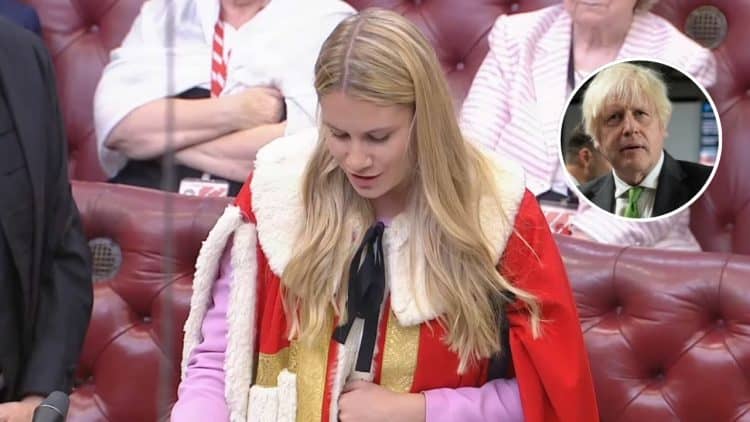Boris Johnson’s decision to grant Charlotte Owen a life peerage, making her the youngest-ever member of the House of Lords at just 30, has long raised eyebrows. Now, after 18 months of wrangling, we finally know why – though the explanation might leave you scratching your head.
Ian Hislop takedown of Elon Musk dubbed a ‘thing of beauty’
What Did Charlotte Owen Actually Do?
According to newly released documents, Owen was elevated to the Lords for her work during Johnson’s premiership, particularly during the pandemic. The citations claim she advised the prime minister and chief whip on key projects, including reshuffles and ministerial appointments.
The revelation came after journalist Martin Rosenbaum successfully challenged the House of Lords appointments commission in a freedom of information tribunal. Previously, the commission had refused to release the reasons, citing personal data concerns.
Who Backed Owen’s Peerage?
Former Tory ministers Grant Shapps and Chris Heaton-Harris wrote letters nominating Owen. However, much of the documentation remains redacted, leaving many details of her appointment shrouded in mystery.
Rosenbaum described the justifications as “very thin, inadequate and lacking in evidence of relevant achievements.” He added:
“They leave her peerage as a mystery rather than properly justifying and explaining it.”
Why the Outrage?
Critics have long questioned why Owen, a relatively unknown former aide, was deemed worthy of lifelong influence over UK legislation. Her appointment, along with that of Johnson’s spokesperson Ross Kempsell (then 31), sparked accusations of cronyism and a backlash over the lack of transparency.
A Win for Transparency
Rosenbaum hailed the tribunal’s decision to release the information as a step in the right direction, saying:
“It shouldn’t take 18 months of fighting for the public to know why certain people are given such significant political powers.”
He argued that the public deserves clarity on why individuals are appointed to the Lords, given their role in shaping laws that govern everyone.
The Verdict? Still Unsatisfying
While we now know the official reasoning behind Owen’s peerage, the details have done little to quell the criticism. For many, the explanations feel like an exercise in vagueness rather than a justification for one of the most controversial appointments in recent history.
You may also like: Liz Truss’s legal drama is trending for all the wrong reasons





